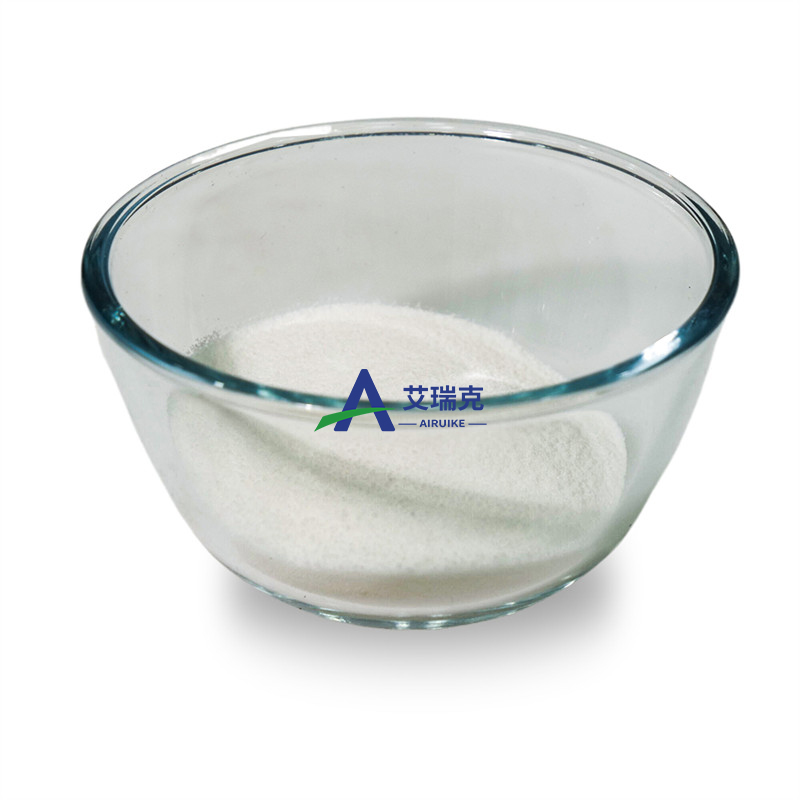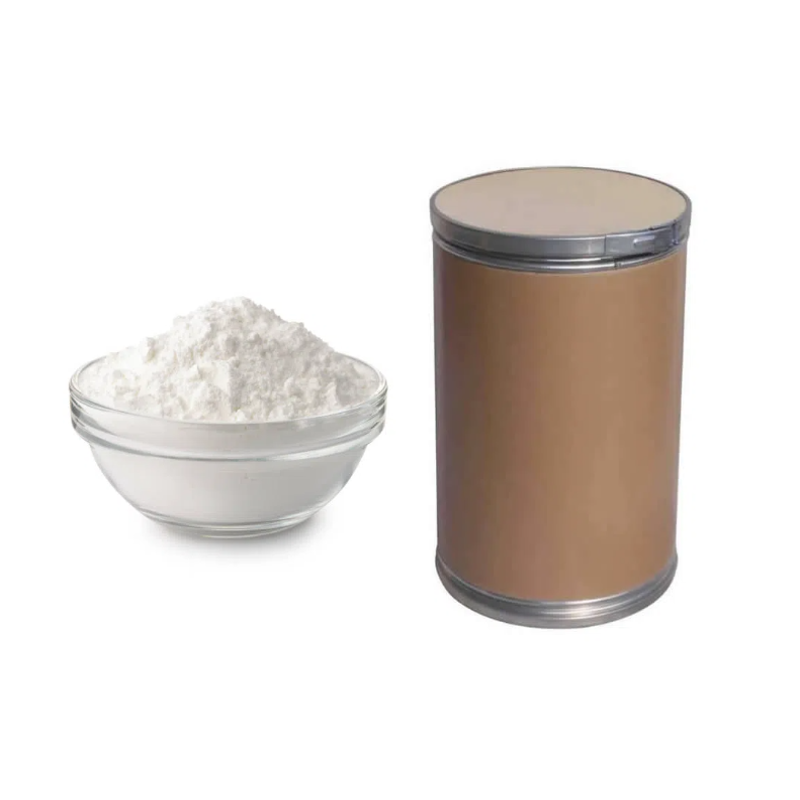-
Categories
-
Pharmaceutical Intermediates
-
Active Pharmaceutical Ingredients
-
Food Additives
- Industrial Coatings
- Agrochemicals
- Dyes and Pigments
- Surfactant
- Flavors and Fragrances
- Chemical Reagents
- Catalyst and Auxiliary
- Natural Products
- Inorganic Chemistry
-
Organic Chemistry
-
Biochemical Engineering
- Analytical Chemistry
-
Cosmetic Ingredient
- Water Treatment Chemical
-
Pharmaceutical Intermediates
Promotion
ECHEMI Mall
Wholesale
Weekly Price
Exhibition
News
-
Trade Service
*For medical professionals only
Through multi-angle examination and thinking, combined with real-world research, experts shared valuable views and diagnosis and treatment experience
.
Prostate cancer is one of the common malignant tumors of the genitourinary system in elderly men, and in recent years, the treatment methods of prostate cancer have been constantly changing, and new drugs have emerged, but androgen deprivation therapy (ADT) is still the cornerstone
of prostate cancer treatment.
Among them, gonadotropin-releasing hormone (LHRH) agonists are the most commonly used class of drugs for the treatment of ADT, which can effectively control testosterone to castration levels, delay disease progression, and improve survival benefits
.
Goserelin acetate has been on the market in China for more than 25 years and has been widely used in the treatment of prostate cancer patients in
China.
The 2022 Asian International Urological Association Annual Meeting (UAA) and the Chinese Society of Clinical Oncology (CSCO) Annual Meeting presented a study evaluating the efficacy and safety of goserelin acetate in real-world prostate cancer patients in China [1,2].
As an authoritative expert in the field of urological cancer diagnosis and treatment in China, Professor Ye Dingwei of Fudan University Cancer Hospital has accumulated rich experience
in clinical research and drug treatment of prostate cancer.
On this occasion, "Medical Community" sincerely invites Professor Ye Dingwei to give academic views
on the selection of LHRH agonists in China, combined with the results of this real-world research.
To interpret the real use of LHRH agonists in China, the concept of "long-acting dosage form" needs to be improved
LHRH agonists are a class of ADT drugs widely used for the treatment of locally advanced and metastatic prostate cancer patients, mainly goserelin, leuprorelin and triptorelin, due to the variety of dosage forms, convenient administration methods, has been widely accepted
by patients.
Professor Ye Dingwei pointed out that the "Investigation on the Current Status of Gonadotropin-Releasing Hormone Agonist in the Treatment of Prostate Cancer" [3] led by his center in 2021 aims to investigate the existing cognition and treatment mode of the use of LHRH agonists in the treatment of prostate cancer castration, as well as the unmet needs in clinical practice, so as to understand the current treatment status and the factors considered by doctors in the treatment process.
It provides a basis
for further optimizing the treatment plan and improving the treatment effect of patients.
The results of the report show that treatment effectiveness, adverse drug reactions, financial burden and injection frequency are the four factors that urologists prioritize in prescribing decisions, and they are also factors that urgently need to be improved in prostate cancer castration drug treatment
.
In the process of prescribing LHRH agonists, doctors should consider the frequency of injections acceptable to the patient, and reduce the impact of frequent injections on the patient's
quality of life while ensuring the therapeutic effect to improve their compliance.
However, at present, in China, the proportion of LHRH agonists using 3-month dosage forms is lower than that of 1-month dosage forms (38%±24.
7% vs 62%±24.
7%), indicating that the current concept of long-acting dosage forms in China still needs to be improved
.
Real-world studies have confirmed that goserelin long-acting dosage forms bring good testosterone and PSA lowering effects
Domestic and foreign guidelines recommend androgen deprivation therapy as the "cornerstone" treatment for prostate cancer [4-6].
Among them, goserelin has been widely accepted and used
by prostate cancer patients with its comprehensive and accurate efficacy and safety data.
Taking the study as an example, Professor Ye Dingwei pointed out that the research data of goserelin runs through the whole process of prostate cancer treatment: the ECOG 3886 study [7] suggests that patients with positive pathological lymph nodes after radical prostatectomy need to continue to use adjuvant endocrine therapy; The SWOG 9921 study [8] provides a reference for postoperative adjuvant endocrine therapy in patients with high-risk factors.
The GETUG AFU-16 study [9] adds confirmation
to salvage radiotherapy combined with endocrine therapy in patients with biochemical relapse.
As we all know, goserelin sustained-release implants have been on the market in China for more than 25 years and are available in short-acting (3.
6mg) and long-acting (10.
8mg) dosage forms
.
This real-world study aims to verify the efficacy and safety of goserelin long-acting dosage forms in Chinese populations, adding further evidence to the therapeutic evidence
of goserelin 。 The study involved 29 centers and included a total of 294 Chinese patients with localized or locally advanced prostate cancer who had never received endocrine therapy before, and were divided into cohort 1: patients with locally advanced stage received goserelin (3.
6 mg or 10.
8 mg) ± antiandrotherapy as first-line therapy, and cohort 2: patients with limited stage or locally advanced stage received radical prostatectomy, goserelin (10.
8 mg) ± antiandrogency as postoperative adjuvant therapy
。 The study was followed for a total of 26 weeks, with the primary endpoint assessing the efficacy of goserelin acetate-based ADT treatment by reducing serum testosterone and serum prostate-specific antigen (PSA) levels, and the secondary endpoint was to explore the safety of
goserelin-based ADT therapy.
Figure 1.
Study design
Table 1.
Baseline characteristics
Professor Ye Dingwei said that baseline serum testosterone levels are correlated
with the risk of prostate cancer and disease outcome.
Guidelines recommend that testosterone should reach and stabilize below castration levels (<50 ng/dL) during ADT <b21>[10].
The results of this real-world study showed that the long-acting dosage form of goserelin resulted in good testosterone and PSA reduction in
both the general patient population and subgroups.
Three non-mandatory testosterone/PSA visits were completed at baseline, weeks 12±2, and weeks 24±2 in 80 and 107 patients, respectively, with 71 (88.
8%) and 72 (90.
0%) patients achieving castration at weeks 12±2 and 24±2, respectively, consistent with data from previous studies of goserelin and other LHRH agonists
。 At the same time, the average PSA value in this study decreased from 36.
8 ng/mL at baseline to 0.
7 ng/mL and 0.
5 ng/mL at week 12±2 and week 24±2, reflecting a good PSA reduction effect
.
Figure 2.
Main research data
In terms of safety, goserelin was safe and well tolerated, with adverse events and serious adverse event rates of 39.
8% and 10.
2%, respectively, consistent with previous studies, and no patients discontinued treatment
due to drug-related adverse reactions.
Goserelin long-acting dosage forms facilitate the long-term management of prostate cancer patients and optimize real-world treatment models
Previous studies have found that LHRH agonists in 1-month formulations have higher delayed injection rates, with delayed injections occurring in 53% of patients compared with 19%
in patients receiving 3-month dosage forms.
Delayed injections may affect the patient's treatment outcomes and even lead to disease progression [11].
The long-acting dosage form only needs to be injected subcutaneously once every 3 months, which can maintain effective blood concentration and no tissue accumulation
.
It not only reduces the increase in testosterone caused by untimely injection, but also reduces the economic burden of patients, improves compliance, and significantly improves the quality of life
.
In the treatment of prostate cancer in the "post-epidemic era", the use of long-acting dosage forms responds to the national guidelines for long-term prescription of anti-tumor drugs, helps reduce the risk of cross-infection on hospital admission, and is also more conducive to the implementation of follow-up and full-process management of
prostate cancer patients.
This real-world study combines sufficient therapeutic data of goserelin in the field of prostate cancer treatment and the advantages of long-acting preparations in the long-term treatment of prostate cancer patients, providing a more accurate reference and basis
for clinical practice in China.
: Professor Ye Dingwei
Vice President of Fudan University Cancer Hospital and Chief Expert of Urological Oncology MDT
Director of Shanghai Institute of Urological Oncology
Director of the Institute of Prostate Cancer, Fudan University
Chairman of the Prostate Cancer Expert Committee of the Chinese Society of Clinical Oncology (CSCO).
Chairman of the Urology Committee of China Primary Health Care Foundation
Former Chairman of the Chinese Anti-Cancer Association Urogenital Tumor Committee (CACA-GU).
Vice President of Oncology Group of Urology Branch (CUA) of Chinese Medical Association, Chairman of CPCC
Vice Chairman of the Urothelial Cancer Expert Committee of the Chinese Society of Clinical Oncology (CSCO).
Vice Chairman of the Kidney Cancer Expert Committee of the Chinese Society of Clinical Oncology (CSCO).
Vice Chairman of the Immunotherapy Expert Committee of the Chinese Society of Clinical Oncology (CSCO).
Chairman of the Urologic Oncology Collaborative Group (UCOG) of China Cancer Hospital
Standing Director of Chinese Anti-Cancer Association and Standing Director of Chinese Society of Clinical Oncology
Leader of the prostate cancer group of the Urogenital Tumor Committee of the Chinese Anti-Cancer Association (CACA-GU).
Deputy leader of the writing team of the Chinese edition of the NCCN guidelines for the diagnosis and treatment of kidney cancer
Member of the NCCN Expert Committee on the Asian Diagnosis and Treatment of Prostate, Kidney and Bladder Cancer
Member of the St.
Gallen Consensus Expert Committee on Advanced Prostate Cancer
Chairman of the Urological Oncology Committee of Shanghai Anti-Cancer Association
Vice President of Urologist Branch of Shanghai Medical Doctor Association
President-elect of the Asia-Pacific Prostate Society (APPS).
Vice President of the Asia-Pacific Society of Cryosurgery, etc
Approval number: CN-105930
Validity: 2023-04-17
Disclaimer: This material is supported by AstraZeneca and is intended for the information of healthcare professionals only
References:
[1] N Chen, Z.
Wang, M.
Chen, S.
Li, D.
Ye, Real-World Effectiveness and Safety of Goserelin 10.
8-mg Depot in Chinese Patients with Prostate Cancer, UAA 2022 Congress,#80
[2] Nanhui Chen, Zengjun Wang, Ming Chen, Juan Li, Dingwei Ye, et al.
, Real-World Effectiveness and Safety of Goserelin 10.
8-mg Depot in Chinese Patients with Prostate Cancer.
2022 Chinese Annual Conference on Clinical Oncology (CSCO), abstract 13507
[3] Gu Weijie, Ye Dingwei.
Current status of gonadotropin-releasing hormone agonist therapy for prostate cancer[J].
Chinese Journal of Urology,2021,42(10):747-751.
)
[4] 2021 Chinese Guidelines for the Diagnosis and Treatment of Prostate Cancer
[5] 2021 European Urological Society (EAU) guidelines
[6] NCCN Clinical Practice Guidelines for Prostate Cancer (2023.
V1)
[7] Edward M Messing, et al.
Immediate versus deferred androgen deprivation treatment in patients with node-positive prostate cancer after radical prostatectomy and pelvic lymphadenectomy.
Lancet Oncol.
2006 Jun; 7(6):472-9.
[8] Flaig TW, Tangen CM, Hussain MH, et al.
Randomization reveals unexpected acute leukemias in Southwest Oncology Group prostate cancer trial.
J Clin Oncol.
2008; 26(9):1532-1536.
[9] Salvage radiotherapy with or withoutshort-term hormone therapy for rising prostate-specific antigen concentrationafter radical prostatectomy (GETUG-AFU 16): a randomised, multicentre,open-label phase 3 trial.
Lancet Oncol.
2016 Jun; 17(6):747-56.
[10] Urology Branch of Chinese Medical Association, Urogenital Oncology Professional Committee of Chinese Anti-Cancer Association, Urologist Branch of Chinese Medical Doctor Association.
Chinese expert consensus on testosterone management in prostate cancer(2021 edition)[J].
Chinese Journal of Urology,2021,42(04):241-245.
)
[11] Twardowski PW et al.
Late administration of luteinizing hormonereleasing hormone (LHRH) agonists and the impact on testosterone suppression in the real-world management of prostate cancer.
Journal of Clinical Oncology 37, no.
7_suppl (March 01, 2019) 149-149.







